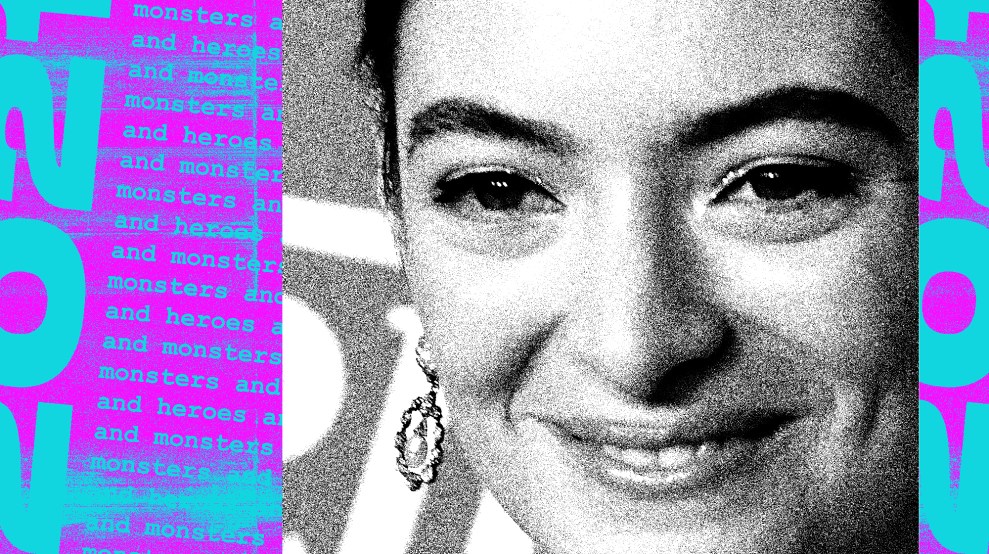
Mother Jones illustration; Robyn Beck/AFP/Getty
As usual, the staff of Mother Jones is rounding up the heroes and monsters of the past year. Find all of 2021’s heroes and monsters here. Lorde has the distinct honor of being both hero and monster, read the other side of the story here.
Lorde isn’t making music for you. I know that’s hard to believe, given so many of us, like myself, found the themes and words of Pure Heroine and Melodrama to be so potent. It was as if someone plucked the very thoughts out of our heads. Art can take a personal experience and tap into its universality. But, in the end, there is still a single creator. Should we punish an artist for not feeling what we feel?
For many, Solar Power, Lorde’s long-awaited third album, seemed to fall short of the transcendent connection they found in her music before—which is fair. We’re all entitled to experience music and art in ways that best feed us. But I can’t relate. She found me where I am. Solar Power dared to be something different in a sea of the same. It was a multidimensional tale of what it’s like to navigate internal quarter-life crises amid external climate and political crises.
Solar Power shifts away from the adolescent mindsets of Pure Heroine and Melodrama. “Crying in the dark at your best friends’ parties, you’ve had enough, gotta turn the lights up, go home,” she sings on “Secrets from a Girl,” nodding at leaving the teenage themes of her past works behind. Growing up means readjusting, and sometimes abandoning, ideas and dreams we once had. That never stops happening—but the proximity of the experience taking place in your mid-twenties is so close to your childhood it feels more complex. For many of us this age these days, there’s an extra sting in having to give things up—because of impending climate doom or insane wealth inequality or not having much of a social safety net, much less anything to look forward to. “I wonder sometimes what I’m missing,” she asks on “Stoned at the Nail Salon.”
The softness of this album’s production is a sharp contrast to her past works like “White Teeth Teens” and “Ribs” on Pure Heroine or “Perfect Places” and “Homemade Dynamite” on Melodrama. But I found the softness reflected an embattled tone between the optimistic acceptance and encroaching nihilism I too frequently experience fighting in today’s messy world. There’s indifference and tranquility in the sound.
When the pandemic hit, I retreated to the mountains. I spent my free time among the waves of the Pacific and redwoods of California. This was the place I had run from in my years as a teenager. I was forced to face all sorts of old internal battles. So, perhaps, it makes sense that an album created out of a return to home and question of how one relates to a natural world among external and internal crises was a favorite of mine this year. And it makes sense too that those who are still looking for the old Lorde can’t find her in this record, in much the same way that my friends can find the old me in my words and online posts.
Among a pop year overflowing with talent and incredible work, Solar Power steered a different course for the genre. (It might take some time for it to be recognized as such, but I have faith.) It invited us to look at ourselves from a different, dare I say, less self-centered point of view. “If I have a daughter, will she have my waist or my widow’s peak?” she wonders on “Oceanic Feeling,” a personal favorite. “My dreamer’s disposition or my wicked streak?” Lorde is present with the natural world and is sharing the fruit it brought her.
It might be pretty trendy and all to be so hippy-dippy-connected-with-the-land. But it’s been a truth taught by those who’ve come long before Lorde made an album. Maybe it’s time to listen to it.








